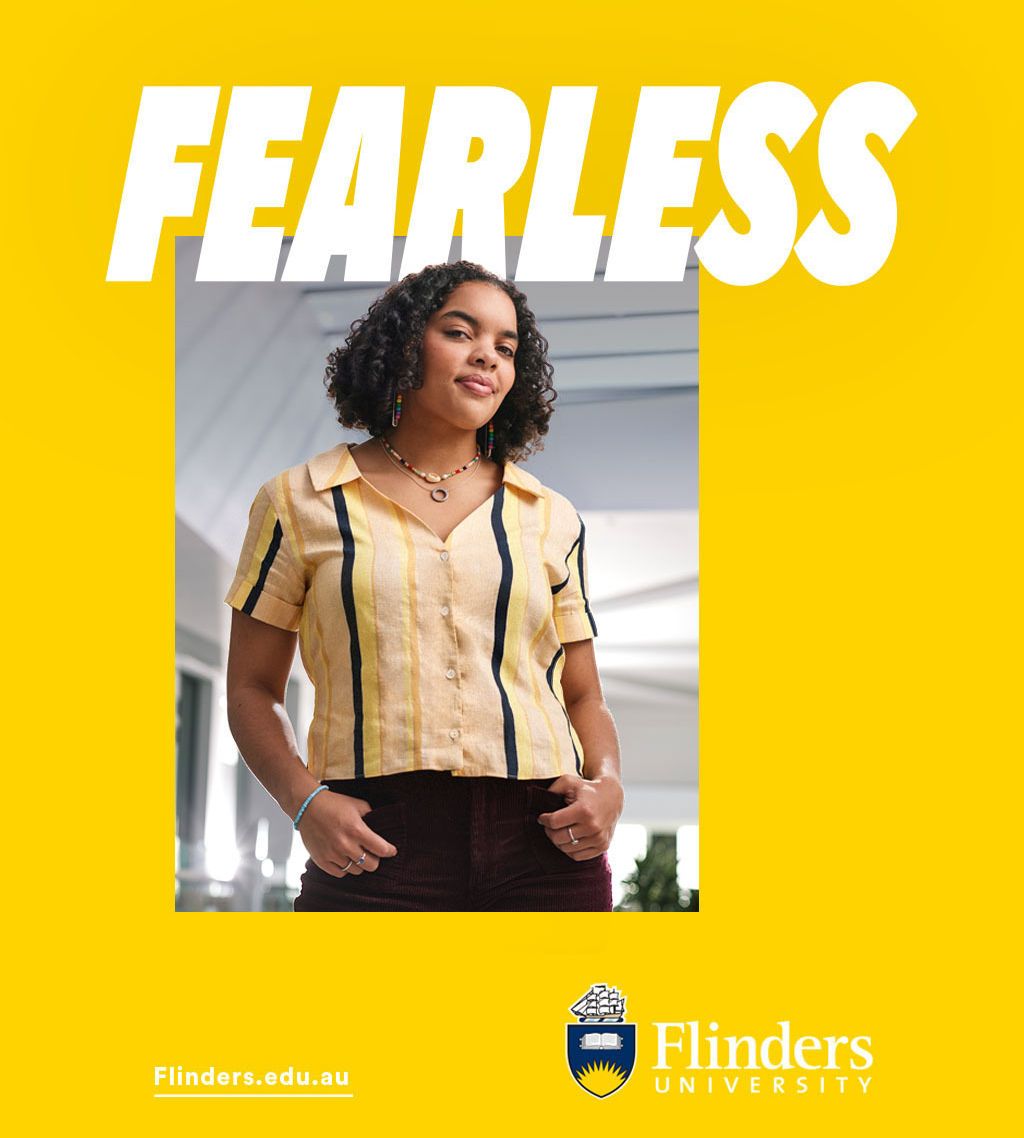Creativity isn't exclusive, but it is endangered writes AADC committee member, Josh Fanning
Groucho Marx wasn’t talking about Adelaide, but he could have been. Australia’s Tall Poppy syndrome keeps the flower stems at lawn level here in the first, free, state. Operating in Adelaide, the AADC – by its very nature – should grow toward the blade that cuts down tall poppies. AADC members must reach for the bleeding edge of social norms and progressive culture in South Australia.
Shouldn't we?
As an outsider of “the club” I remember looking at the AADC and thinking that the very notion of a club was at best naff, and at worst – exclusive. Meeting with Taylor Martin and Jamie Scott last year, the then co-presidents (Jamie has since completed his term and handed to Joe Godsell) outlined a simple vision for the club: support and promote our industry and everyone in it. For them “everyone” means creating more room for the underrepresented IE: women and anyone not identifying as a white man.
Far from put off, this pitch made me sign up. Like Marx said, who wants to belong to a club that would have you as a member?
At Cannes Lions awards this year three effectiveness in advertising geeks got up and told the industry that the world (pretty much) has ADHD.
Coming from a media background – an industry whose business model is (if not literally, then absolutely figuratively) on fire – I expected advertising to be a sea change. You guys have the money and the power to make new norms and usher in progressive ideas that grow companies and society at the same time, right?
Ha!
At Cannes Lions awards this year three “effectiveness in advertising” geeks got up and told the industry that the world (pretty much) has ADHD. Karen Nelson-Field broke down the decline in effectiveness as a result of the industry’s focus on measuring inward versus outward. “Relying on data that says an ad has been seen for 10 seconds is foolish, because the truth of that 10 seconds may be that the person is doing 10 different things on the platform at the same time.” The three “geeks” – Peter Field, Karen Nelson-Field and Orlando Wood were unanimous in their consensus that the shift in advertising from long-term brand building to short term sales activations has eroded effectiveness to staggeringly low levels. AKA: Advertising's business model is broken.
Where I thought advertising work would be like Nike or Apple or even Dollar Shave Club – fighting the good fight etc. – the truth is much more forgettable.
Advertisers are wasting stacks of cash chasing attention in places that promote distraction, when they could be building gravity through powerful brand messaging.
Karen presented a slide at Cannes that she felt particularly poignant. “15 per cent of ads get 2.5 seconds of attention. The rest are just not noticed,” said Karen. This stat comes from research testing some 130,000 ads! “85% of ads sit below the attention memory threshold,” she told the crowd of ad-makers without any hesitation.
Interpretation: advertisers are wasting stacks of cash chasing attention in places that promote distraction, when they could be building gravity through powerful brand messaging.
My collaborator (and strategist at KWP), Georgia Ion shared a stat from a Porter Novelli study that provides an alternative path to chasing attention. “77 per cent of consumers say they have stronger emotional bonds to purpose-driven companies,” said the 2018(!) study.
Another succinct alternative to the ubiquitous, itsy, bitsy, flash-and-grab approach to marketing is pictured below.
As I gear up for the 45th Adelaide Advertising and Design Club Awards I’m going to be looking forward to seeing where the club is at as a whole and what we think is award-worthy. Thankfully I'm not on the judging panel (something about a conflict of interest). I'm interested to know...
What creative companies in Adelaide are doing great work… for the greater good?
Who is challenging the status quo with crazy ideas that make total sense?
Which teams and which individuals are standing up for consumers and respecting our audiences' time (and limited attention) by giving them something rather than taking something?
Even thinking about my own work and KWP's output, I know we could have done better over the past 12 months. We could have gone deeper. But that’s the point of stopping each year and checking in, right?
It's important to be part of this club and share a common sense of what "great work" looks and sounds and performs like. It's important to share that with marketers all over the state. It's important to celebrate the best and acknowledge where we can build and improve.
I’m looking forward to celebrating at the AADC Awards—absolutely—and taking stock—sure—but I’m also looking forward to connecting with you. Let’s not take our connection via this club for granted. Let’s also stop pretending we’re not competing.
Competing for attention in the world of ideas is a privilege; a privilege I’m proud to share with you.






























